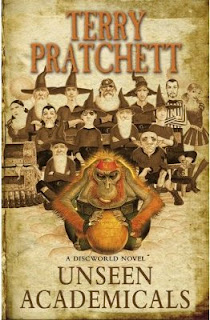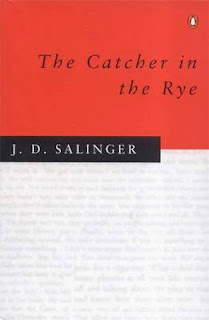Corbynmania, or How Scotland Changed Everything And Will Do Again
On 7th September last year, YouGov published a poll putting Yes in the lead in the Scottish independence referendum, and so kicked
off a year of political wackiness that will almost certainly end in
Jeremy Corbyn being elected Labour leader this 12th September. Hands up
who predicted that?
While the eventual referendum result went the other way,
the poll was enough to provoke the panicked "vow", followed by the
notorious tone-deaf Cameron speech in the wake of victory that did so
much to cement the SNP's support. Then Labour wipeout in Scotland and a
Tory majority, each a bigger surprise than the last. We should have
guessed that Labour's leadership election would not be the dispiriting
snoozefest it initially promised to be.
In the wake of Miliband's defeat, all 3 mainstream
candidates vied to cosy up as much as possible to business, declare
their undying love of "aspiration", and drop as many leftish policies as
they could get away with. The contest has changed so much amid furious backtracking that it's easy to forget what a counsel of despair was being offered at the beginning, but it was that which left the door wide open for Corbyn to offer a more positive vision.
Labour stalwarts are flabbergasted by Corbyn's success, as
well they might be. In many respects he is Labour's Iain Duncan Smith, only more so. Hard left, no experience of government and a perpetual rebel, with enough
historical baggage to keep the champagne corks popping at Number 10
from now until the next election. It's possible the Tories will be so
overjoyed at his victory that they go Full Bullingdon and trash a couple of
restaurants in delight.
Some of the MPs who nominated Corbyn to "broaden the
debate" are now kicking themselves. After all, they undermined the whole
open primary concept by removing the safeguards on the nomination
process. They only have themselves to blame if they aren't comfortable
with the result. The reliably contrary Frank Field is one who has stuck to his guns, pointing out that Corbyn's success does Labour a favour by
demonstrating what "thin gruel" the other three candidates were
offering. And he is right. Without Corbyn to shake things up, it's
possible the entire party would have imploded with boredom before even
reaching the vote.
Corbyn's success, where previous left candidates have
failed, is due firstly to the mainstream candidates vacating the
centre ground (ironic given how Blairites love to lecture about elections only being won from the centre). Why was no mainstream candidate willing to advocate an
overtly anti-austerity position? After all, austerity advocates lost the debate within mainstream economics years ago. But none was willing, so the job
fell by default to Corbyn. Most of what he has proposed during the campaign is moderate and reasonable,
and sounds as much to new supporters who are unlikely to have heard of
him before the election, let alone be familiar with his record.
Second, Corbyn's campaign has followed where the SNP lead. The
left are desperate for something to inspire them the way the independence dream inspired Scots. The exhausted Blairite ideology is completely unable to provide this. Yet compare how Blair himself came
to lead the party, when his message was about hope and belief first and electoral calculation a firm second. Blair admitted as much himself when he
recently said "I wouldn't want to win on an old-fashioned leftist platform. Even if I thought it was the route to victory, I wouldn't take it". Blair acted according to his beliefs. Corbyn is the only candidate you feel
is doing the same.
Third, it undoubtedly helps that beards are in fashion.
Third, it undoubtedly helps that beards are in fashion.
These are the crucial differences between IDS and Corbyn (especially the beard). Corbyn's campaign has enthused vast numbers of people who were previously turned off by the Labour party and Labour's
highest priority now should be to maintain and build on that enthusiasm. The only way to do that now is to give Corbyn his chance. While Burnham (with reservations) and Cooper (with different reservations) are far more credible leaders, selecting one of them after Corbynmania would be such an anticlimax that Labour may be left in the doldrums for the forseeable future.
And that's not to mention what a field day it would be for conspiracy theorists if the result were close.
Corbyn's rise reminds me very much of Howard Dean's
2004 presidential campaign, in its rapid growth, brilliant campaigning and ability to enthuse
new young activists. Eventually of course the Democrats got serious, chose Kerry and lost anyway. It was up to Obama to build on that
enthusiasm and internet techniques to become president. And perhaps the same will happen to Corbyn. Ever the political optimist, I see two potential good outcomes:
1. Corbyn rides his wave of popularity all the way to No.
10, with any and all criticisms bouncing off his Labour party much like
they did the SNP.
2. Corbynmania crashes and burns, but leaves behind a re-energised and greatly enlarged party that inherits his more robust approach to opposition while picking a leader who looks more like a potential PM.
I find option 1 hard to imagine, but in this age of surprises I wouldn't dream of ruling it out, still less predicting the odds of either option coming true versus it all ending in
disaster and eternal Tory rule. But the outcome of the campaign we were originally
anticipating would have been all too easy to predict: a gradual but unstoppable withering away.
One of the first tests of Corbyn's leadership will be the Scottish parliament elections in 2016. There could hardly be a more elegant natural experiment for Scottish lefties, vast numbers of whom claim they voted SNP not because swept up in nationalist fever but because they're a properly left wing party unlike those horrible "Red Tories". It doesn't matter that the notion the SNP were more anti-austerity than Labour was a fantasy: their fiscal plans were all but identical to Labour's and both were miles from the Tories. The difference was that the SNP chose to present themselves as the anti-austerity option while Labour declared themselves to be paragons of deficit-reducing rectitude. Perception is everything. Under Corbyn there will be a crystal clear anti-austerity message coming from Labour and the Scottish left will have to decide whether to put their votes where their mouths are. Their decision could make or break Corbyn's leadership.
One of the first tests of Corbyn's leadership will be the Scottish parliament elections in 2016. There could hardly be a more elegant natural experiment for Scottish lefties, vast numbers of whom claim they voted SNP not because swept up in nationalist fever but because they're a properly left wing party unlike those horrible "Red Tories". It doesn't matter that the notion the SNP were more anti-austerity than Labour was a fantasy: their fiscal plans were all but identical to Labour's and both were miles from the Tories. The difference was that the SNP chose to present themselves as the anti-austerity option while Labour declared themselves to be paragons of deficit-reducing rectitude. Perception is everything. Under Corbyn there will be a crystal clear anti-austerity message coming from Labour and the Scottish left will have to decide whether to put their votes where their mouths are. Their decision could make or break Corbyn's leadership.
It's no exaggeration to say the fate of the UK will lie in the hands of Scottish voters once again next year.



Comments
Post a Comment